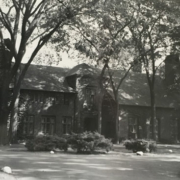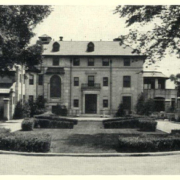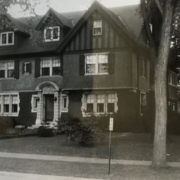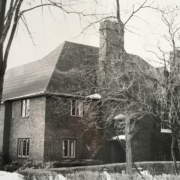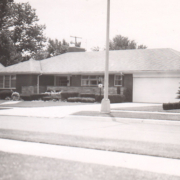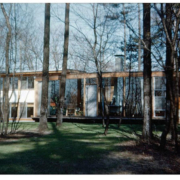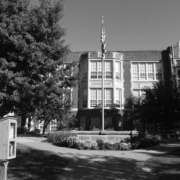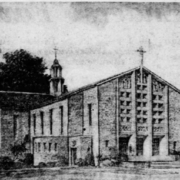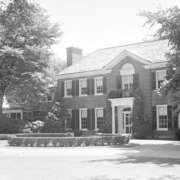Historical Architecture of Grosse Pointe – 344 Provencal
Last week we presented part 2 of our story on one of Grosse Pointe’s most historic complexes, Grosse Pointe Academy, formally known as Academy of the Sacred Heart. Located at 171 Lake Shore, the complex is situated on an area that is almost twenty-acres. The site consists of five buildings – an early farmhouse and four larger academy buildings – Sacred Heart Academy and Convent, St. Paul’s Parish School, the Chapel, and the Main School Building – constructed between 1885 and 1930.
This week we turn our attention to 344 Provencal, “Mennen Hall”, a Tudor Revival style mansion located on the prestigious street of Provencal in Grosse Pointe Farms. Completed in 1929, the property was designed by the prominent architect Hugh T. Keyes.
344 Provencal was built for Henry P. Williams and his wife Elma C. Mennen (heiress to the Mennen personal grooming products fortune). Affectionately known as “Mennen Hall” the 8,496 sq ft residence is located on a 200 x 400-acre lot. The stately brick Tudor has all the classic traits one would expect from a house of this grandeur – an asymmetrical configuration, intricate detailed brickwork, a steep slate roof, and tall leaded glass windows. Arguably the defining feature on the front elevation is the two-story entrance that creates a key focal point. The slightly recessed doorway is flanked by a carved architrave with an English Georgian style pediment above. Another interesting feature are the multiple tall chimneys with the unique arched chimney caps. The first image is courtesy of: digitalcollections.detroitpubliclibrary.org/
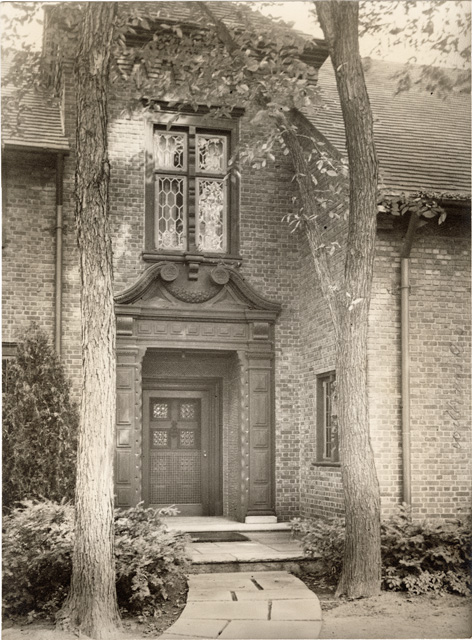
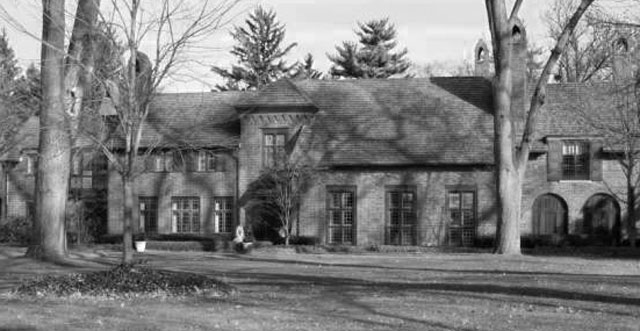
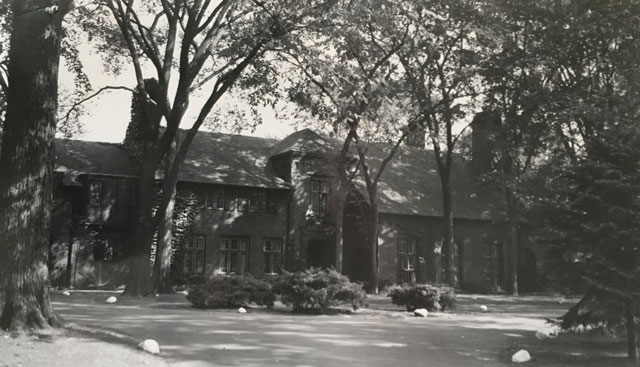
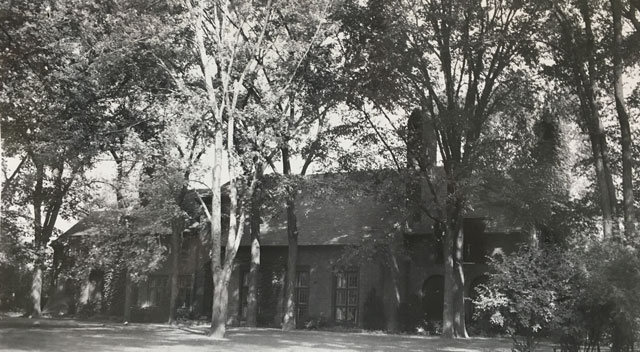
Original owners Henry P. Williams and his wife Elma Mennen Williams were a prominent couple in Detroit. Mr. Williams was born in Detroit in 1883, a descendant of one of the oldest families in the city. “His father and uncle were known widely in Detroit business, and his mother Sarah, was a member of a family which had been in Detroit since early days”. Source: Detroit Free Press (1941). Mr. Williams was in the real-estate business for much of his career. He was also an active official of the local branch of the Red Cross, president of the Detroit Boat Club (on Belle Isle) and was a vestryman of St. Paul’s Cathedral. His wife Elma Christina Mennen was born in Newark in 1885. She came from a prosperous family; her father, Gerhard Heinrich Mennen, founded the Mennen brand of men’s personal care products in 1878. “One of his first products was talcum-based powder, an innovation at the time”. Source: Wikipedia. In 1992, the Mennen brand was sold to Colgate-Palmolive Company.
Henry and Elma Williams married in 1909. Their eldest son Gerhard was born in 1911. “Gerhard Mennen “Soapy” Williams was the 41st Governor of Michigan, elected in 1948, he served six two-year terms in office”. “He later served as Assistant Secretary of State for African Affairs under President John F. Kennedy and Chief Justice of the Michigan Supreme Court”. Source: military-history.fandom.com
In February 1941, Henry P. Williams passed suddenly aged 58. From our files we know Mrs. Williams listed the property for sale in May 1948, for $100,000 (around $1.2m today). 344 Provencal was still for sale in October 1949, at which point the price had been reduced to $86,000. In September 1950, the house was taken off the market due to a fire. We don’t know the level of damage the property sustained but the house remained off the market for a period of time while repairs were made. Mrs. Williams, due to lack of interest in the property, was adamant “she was not going to give it away”. The residence was still of the market in 1953, and remained so while Mrs. Williams traveled to Europe. In December 1955, 344 Provencal was purchased by Mr. A. Tuscany for $80,000 (around $885,000 today). Elma Mennen Williams passed in November 1968.
The architect of 344 Provencal was Hugh T. Keyes, a prolific designer of fine homes in the Grosse Pointes and arguably one of the most diverse architects to ply his trade in the community. His work centered on creating grand estates for the industrialists of Metropolitan Detroit and he is considered one of the most versatile architects of the period. Born in Trenton, MI in 1888, Keyes studied architecture at Harvard University and worked under architect C. Howard Crane. After graduating he quickly became an associate of Albert Kahn working on Kahn’s “signature project” at the time, the Detroit Athletic Club (in 1913). After serving with the Navy during World War 1, Keyes returned to Michigan. He briefly worked at Smith, Hinchman, & Grylls, before opening his own Detroit office in 1921. Keyes was a versatile designer. Having completed the Italian Renaissance villa on Lewiston, arguably one of his most charming projects, Keyes, for the next few years, was heavily influenced by Tudor, French Renaissance, and formal Georgian styles. Post 1930, he switched to his trademark Regency Moderne style that we would ultimately become most noted for.
Prior to 1930, Keyes worked on several residences on Provencal:
- 260 Provencal – 1927 – Built for William Hendrie – razed 1972.
- 34 Provencal – significantly remodeled by Hugh T. Keyes in 1928 – You can read the full story of the home by clicking here.
- 344 Provencal – 1929
344 Provencal, “Mennen Hall”, is a sublime home, created by a master designer for a couple who have left a significant legacy in terms of family and business.
*Photos courtesy of the Higbie Maxon Agney archives unless stated.
** Research, information, and data sources are deemed reliable, but accuracy cannot be fully guaranteed.
Written by Katie Doelle
Copyright © 2022 Katie Doelle

